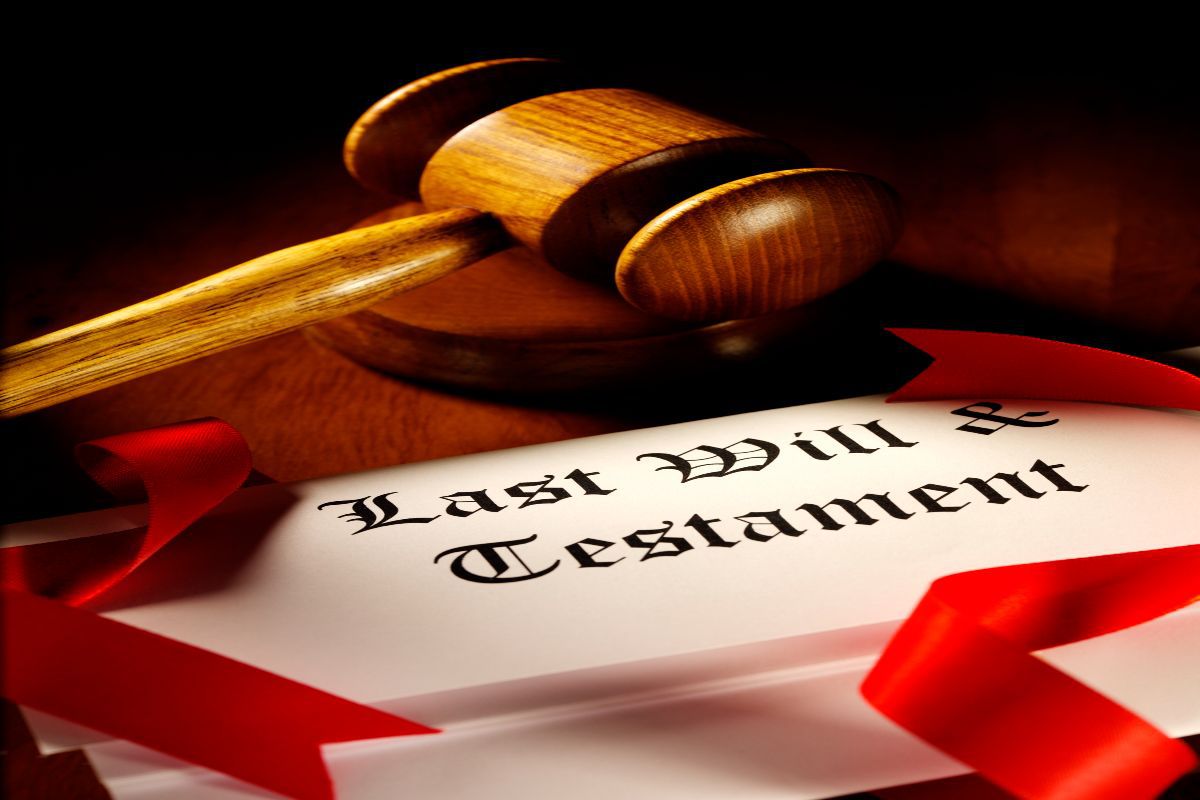You may have the ability to contest a will in court if you believe that there was a problem with its execution. People who are somehow interested in distribution of an estate, such as heirs or spouses, could have grounds to contest the will. You might be able to assert (1) lack of capacity, (2) revocation, (3) improper execution, (4) undue influence, or (5) fraud as reasons to contest. Seek legal representation to learn more about your rights.
-
Lack of Capacity
One way to contest a will is by asserting lack of capacity by the person who made the will (called a testator). Unfortunately, sometimes testators are incapacitated by mental or physical conditions. These conditions could prevent them from forming the required intent to create a will and leave property to heirs. To make a legally binding will, you must understand the act that you are performing and its effect, and you must understand the nature and extent of your property. If someone does not understand these things because of incapacity, then the will may not be valid. An example could be if a relative had dementia and signed a will without understanding its contents. The relative may have lacked capacity to make a will.
-
Revocation
Another way to contest a will is by asserting that the will had been revoked or replaced by a new will. A testator can decide to revoke (take back) a will that he or she previously signed. The Texas Estates Code allows testators to revoke wills by executing a new will, codicil (amendment), or declaration in writing. This new document must be signed with the same formalities as the old will. Alternatively, the testator can destroy or cancel the will, such as by tearing it into pieces or crossing out all the text. Revocation can apply to all or part of a will.
If a testator executes more than one will, the timing of execution may become important. For example, someone could sign a new will shortly before their death. The question then becomes whether the new will effectively revokes the old will. The court will need to determine if the dying person had capacity to make the new will and if it was properly executed. If so, then the new will replaces the old will. If not, then the old will remains in place. Speak to a trusts and estates lawyer to learn more about revocation.
-
Improper Execution
To be binding on heirs and other interested people, a will must be properly executed (signed). The Texas Estate Code lays out the specific requirements for execution:
- The will must be in writing.
- It must be signed by the testator in person.
- If not signed by the testator in person, then signed by another person on the testator’s behalf
- In the testator’s presence, and
- Under the testator’s direction.
- All wills must be witnessed by two or more people over age 14 who sign their names to the will in the testator’s presence.
If any of these requirements are not met, then a will may be null and void because it was improperly executed. Since the requirements are very specific, it is possible in some cases to bring a will contest because of improper execution. Your local trusts and estates lawyers at Henke, Williams & Boll can analyze your specific situation.
-
Undue Influence
Moreover, some wills are not recognized because they were signed under undue influence. Undue influence means that another person exerted pressure on the testator to sign a will. A common example from books and movies is a new wife urging an ailing husband to sign over all his property to her, rather than to his children from a previous marriage or his ex-wife. Undue influence can be hard to prove because you must show more than a request by the heir to be included in the estate. You must show that the influence took over in the testator’s mind, and the testator would not have made the will without that influence. A lawyer can review your case to see if undue influence might affect the will’s validity.
-
Fraud
Finally, fraud can render some wills invalid and unenforceable. A simple example of fraud is someone forging a fake will or forging the testator’s signature to a will. Another example is a testator being misled by someone else about what is stated in the will. The other person could say that the will contains a specific provision (such as a gift to a specific relative), but it does not. The testator signs the will believing it contains the provision.
Like undue influence, fraud can be difficult to prove in a will contest. If you believe that a family member or friend’s will is fraudulent or obtained under false pretenses, contact a lawyer right away.
When You Need to Contest a Will, Call Us
As experienced Houston trusts and estates lawyers, we help our clients through will contests and other probate court matters. At Henke, Williams & Boll, our lawyers tailor their advice to your unique situation. Everyone’s case deserves the personal attention that we give it. To schedule a consultation regarding a will or trust, call (713) 936-5521 or use our convenient Contact Form.


